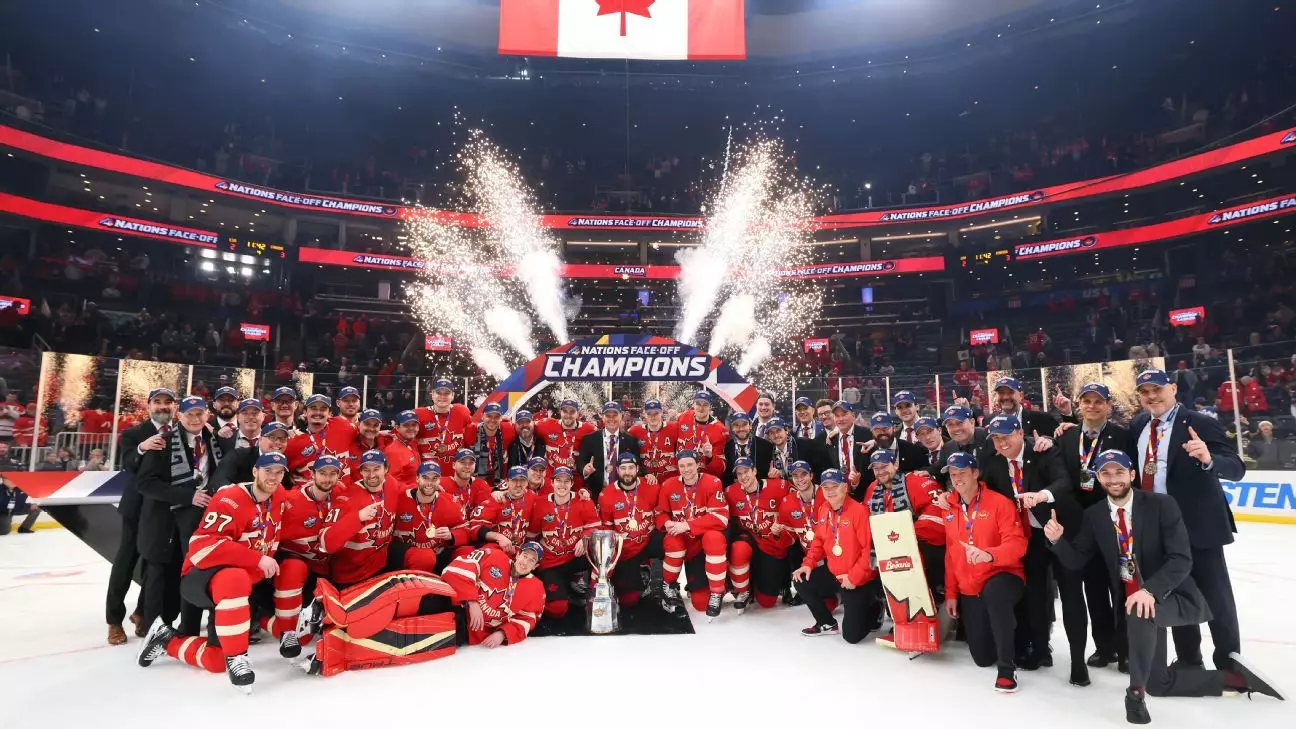The National Hockey League (NHL) is poised on the verge of significant transformation, moving away from its traditional All-Star Game format towards a fresh and engaging approach. After witnessing the remarkable reception of the 4 Nations Face-Off event, a newly conceived tournament boasting NHL talent from North America and Europe, the league is motivated to push the envelope further. By the time February 2026 rolls around, the New York Islanders will host this anticipated showcase at UBS Arena, promising fans an exhilarating experience that could redefine how All-Star festivities are organized.
NHL Commissioner Gary Bettman recently articulated that the league is committed to upholding the elevated standards established by the 4 Nations event. “We want to ensure whatever we do continues to meet the high expectations we’ve set,” he stated. With the evident success of the 4 Nations tournament, which featured round-robin matches between teams from Canada, the United States, Sweden, and Finland, the NHL is proving that it can successfully pivot from old formats to something that resonates with contemporary audiences.
A New Era of Competitive Spirit
The overwhelming success of the 4 Nations series underscores a collective desire for a more competitive and spirited display of hockey during the All-Star festivities. Unlike the often criticized and lackadaisical nature of previous All-Star games, the 4 Nations format showcased real competition, culminating in a thrilling overtime victory for Canada over the United States thanks to Connor McDavid’s remarkable goal. This electrifying climax displayed the kind of intensity that has been sorely missed in prior All-Star events, which had devolved into mere exhibitions.
The NHL has clearly read the room regarding fan sentiment. Viewers crave authenticity and genuine competition even within the realm of All-Star showcases. Acknowledging this shift, Bettman hints at future surprises and new moments, while keeping details under wraps for now. There’s no denying that the league is on a journey toward heightened creativity and innovation to captivate its audience.
The Path to the Olympics
Part of this renewed interest in legitimacy and competition lies in the NHL’s relationship with international events, particularly the Olympics. After a prolonged absence from Olympic participation due to various challenges (including the COVID-19 pandemic and their withdrawal from the 2018 Games), the NHL is actively seeking to mend fences with the International Ice Hockey Federation (IIHF) in preparation for the 2026 Milano-Cortina Games. Bettman has emphasized the league’s willingness to collaborate closely with IIHF officials to facilitate player participation, signaling an eagerness to put NHL stars back on the global stage.
In this context, the invigorating atmosphere created by the 4 Nations event acts as a precursor to returning to Olympic hockey, underlining the importance of NHL players competing in prestigious international arenas. As the league collaborates with the IIHF, it is paving the way for not only showcasing talent but also enhancing the appreciation for the sport on a worldwide scale.
Future Talks: CBA and Potential Changes
While the focus on All-Star events and international competitions becomes prominent, the NHL’s ongoing collective bargaining agreement (CBA) discussions with the players’ association require equal attention. As the current CBA nears expiration in September 2026, negotiations are set to commence in early April. While Bettman appears optimistic, expressing confidence in the negotiations being more about logistical adjustments than contentious issues, the landscape remains dynamic.
One pressing point of discussion may revolve around player pathways from junior hockey to professional leagues, especially with recent NCAA changes allowing Canadian Hockey League players to maintain college eligibility. Adapting to these shifts could influence various aspects of player development and prospects’ professional trajectories, igniting debates about junior hockey rules and their implications.
Rethinking the Draft Experience
In addition to a vibrant All-Star game and the intricacies of player contracts, the NHL is also overhauling its draft format. Rather than congregating teams in a single city, the league is innovating by implementing a decentralized draft system. By having representatives gather in Los Angeles while most team members remain in their home cities, the NHL seeks to create a more inclusive experience that respects geographic diversity. This change offers familiarity in terms of traditional elements while embracing modern technological advances.
Bettman remains non-committal towards permanently shifting to this format, suggesting the league will monitor reactions and results closely, demonstrating a willingness to adapt based on feedback. The NHL’s awareness of evolving trends and their proactive approach to potential changes can only augur well for the sport’s future.
In embarking on this transition toward more competitive and engaging displays of hockey, the NHL is not just looking to refurbish its image; it is aiming to create an authentic connection with fans, players, and the sport itself. The foundation laid by events like the 4 Nations and initiatives aimed at making the All-Star Game a reflection of genuine competition is a powerful signal of the evolving landscape of hockey.


Leave a Reply